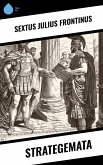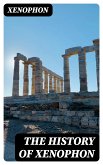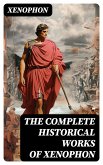In "Strategemata," Sextus Julius Frontinus masterfully compiles a rich tapestry of military stratagems and tactics drawn from the annals of history. Written in the first century AD, this treatise juxtaposes anecdotal narratives with analytical insights, revealing the cunning maneuvers employed by ancient generals to outwit their foes. Frontinus's literary style, marked by clarity and eloquence, situates the text within the broader context of Roman military literature, expertly illustrating the interplay between strategy, deception, and the psychological dimensions of warfare. His work serves not only as a manual for military leaders but also as a reflection on the nature of power and human behavior in the face of conflict. Frontinus, a distinguished Roman military engineer and politician, was well-acquainted with both the theoretical and practical aspects of warfare, having served in various military capacities and holding the esteemed position of water commissioner in Rome. His lived experiences undoubtedly informed his writings, providing a grounded understanding of strategy that transcends mere theoretical discourse. This duality of background imbues "Strategemata" with authenticity and depth, establishing Frontinus as a pivotal figure in the study of military stratagems. For scholars, tacticians, and aficionados of military history, "Strategemata" is an indispensable text that distills the complexities of warfare into timeless principles. It offers readers keen insights into the art of strategy, ensuring that its relevance resonates even in contemporary discussions on military tactics and leadership. Dive into this compelling work to uncover the classical underpinnings of strategy that inform modern principles of conflict resolution and military thought.
Dieser Download kann aus rechtlichen Gründen nur mit Rechnungsadresse in A, B, BG, CY, CZ, D, DK, EW, E, FIN, F, GR, H, IRL, I, LT, L, LR, M, NL, PL, P, R, S, SLO, SK ausgeliefert werden.









